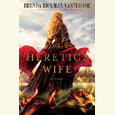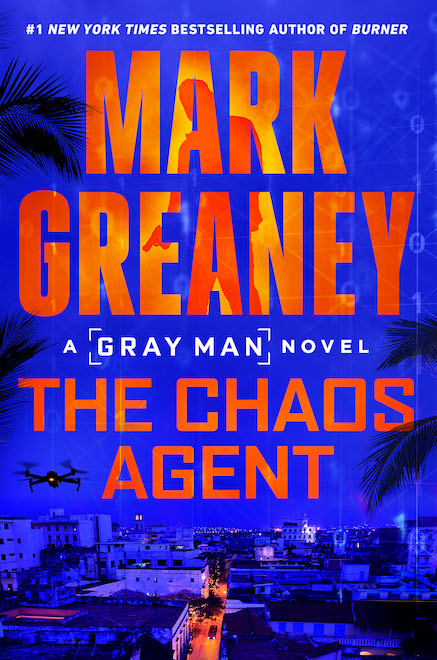The Soldiers of Shiloh
Novelist Jeff Shaara returns to his Civil War roots
In 1975, Michael Shaara won the Pulitzer Prize in Fiction for The Killer Angels, often cited since as the greatest Civil War novel ever written. Shaara’s story about the three days of the Battle of Gettysburg established a literary style that his son, Jeff Shaara, has turned into a career of his own. Starting with Gods and Generals, the prequel to his father’s novel, and continuing with its sequel, The Last Full Measure, Shaara then wrote his way through the Revolutionary War, the First World War, and World War II. In each book, he details the lives of the generals, junior officers, and enlisted men who fought and died, giving readers a front-row seat at some of history’s greatest military actions. With A Blaze of Glory, Jeff Shaara has returned to the Civil War, to the bloody April days at Shiloh.
One year into the Civil War, in the spring of 1862, the nation had already learned that the war would not end in a quick, easy victory for either side. The opening Battle of Bull Run had demonstrated the will of the South, and the Union victories at Forts Henry and Donelson had shown that the North, too, had the backbone for fighting. But nothing in that first year had prepared the broken country for the carnage that lay ahead. That revelation came at Shiloh, in the backwoods of Tennessee, hard by the Tennessee River. There was no real town, no vital crossing of roads that led the armies to that now-hallowed place; there was only a one-room church, a river landing, and rumpled fields, woods, and orchards. Forces led by Ulysses S. Grant were encamped there under orders to await reinforcements from the Army of the Ohio under Don Carlos Buell. The plan was to march the combined armies to Corinth, Mississippi, to crush Albert Sidney Johnston’s Army of Tennessee. But while waiting for Buell to arrive, Grant was surprised by a Confederate attack, launched at breakfast on a Sunday morning. By the end of the second day of battle, nearly 3,500 Confederate and Federal men lay dead on the field. Another 21,000 were wounded, missing, or captured. The magnitude of the devastation so disturbed the North that, even in victory, Grant was effectively relieved of command.
 In A Blaze of Glory, Shaara relates the horror through the eyes of several men in blue and gray, from the commanding generals to the soldiers doing the killing. Following the format established by his father, Shaara switches from man to man through the battle, allowing the reader to understand not just the tactics but the emotions of war: the setting of plans, the stupid mistakes, the confusion and cold fear of the fight. He shows Johnston struggling to execute a flawed but effective plan, Union division commander William T. Sherman furiously trying to rally his shattered forces, and Private Bauer of Wisconsin just hoping to survive a fight he doesn’t fully understand. Shaara imagines these and other men as they react to the terrible circumstances in which they find themselves, working heroically or not, each according to his abilities. As Shaara writes, “The fight around Shiloh Church had come from the plans and ambitions of generals, and no matter the disaster of that, it was the foot soldiers who would still do the deed, who would be asked to decide the fate of the town, of the country, and more important to many, the fate of the men around them.”
In A Blaze of Glory, Shaara relates the horror through the eyes of several men in blue and gray, from the commanding generals to the soldiers doing the killing. Following the format established by his father, Shaara switches from man to man through the battle, allowing the reader to understand not just the tactics but the emotions of war: the setting of plans, the stupid mistakes, the confusion and cold fear of the fight. He shows Johnston struggling to execute a flawed but effective plan, Union division commander William T. Sherman furiously trying to rally his shattered forces, and Private Bauer of Wisconsin just hoping to survive a fight he doesn’t fully understand. Shaara imagines these and other men as they react to the terrible circumstances in which they find themselves, working heroically or not, each according to his abilities. As Shaara writes, “The fight around Shiloh Church had come from the plans and ambitions of generals, and no matter the disaster of that, it was the foot soldiers who would still do the deed, who would be asked to decide the fate of the town, of the country, and more important to many, the fate of the men around them.”
It was the fate of many at Shiloh to be maimed or killed, some horribly so as artillery shells caught the fields on fire. When Bauer and his surviving comrades in arms retake the ground they lost, they must advance over and through the corpses, body parts, and pleading wounded of the previous day’s battle. The visions and sounds would scar the survivors for life and as news of the fight reached the papers, names like the Peach Orchard, the Hornets’ Nest, and Bloody Pond scarred the conscience of the nation, as well. But there were three more years of war to go, with the worst yet to come: Shiloh was the biggest and costliest battle in American history to that date, but it is counted as only the sixth bloodiest battle of the Civil War (although inaccurate casualty counts make the battle’s exact place on this notorious list uncertain).
A Blaze of Glory is the first novel in a trilogy that will follow the men through the western theater—the fighting in Tennessee, Mississippi, and finally Georgia that was as decisive in determining the outcome of the war as the better-known action in the east. Lee plays no role here, and Grant will depart in the second book after his triumph at Vicksburg, leaving Sherman to take Atlanta and carve a path to the sea in the final act. Shaara has set himself another ambitious goal, and as America ponders the legacy of the Civil War during these sesquicentennial years, his books will help commemorate the men who faced each other over muskets and cannons to determine what kind of nation we would be.
Jeff Shaara will discuss A Blaze of Glory at the Nashville Public Library on June 5 at 6:15 p.m. as part of the Salon@615 series.


